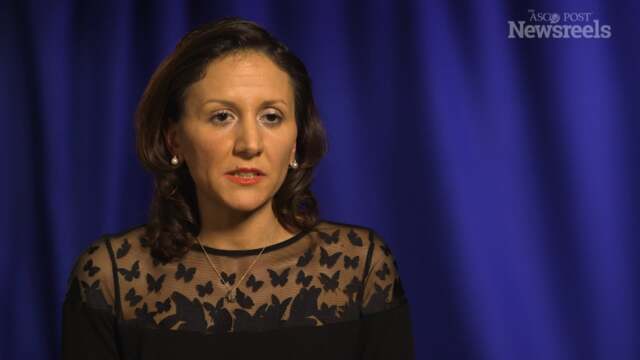Toni K. Choueiri, MD, on Metastatic RCC: Results From the ALLIANCE A031203 Trial
2016 ESMO Congress
Toni K. Choueiri, MD, of the Dana-Farber Cancer Institute, discusses study findings on cabozantinib vs sunitinib as initial targeted therapy for patients with metastatic renal cell carcinoma of poor and intermediate risk. (Abstract LBA30) Follow him on Twitter: @DrChoueiri
Yung-Jue Bang, MD, PhD, of Seoul National University Hospital, discusses phase III study findings on olaparib and paclitaxel in patients with advanced gastric cancer who have progressed following first-line therapy. (Abstract LBA25)
The ASCO Post
Teresa Calimeri, MD, PhD, of San Raffaele Hospital, discusses in Italian high-dose methotrexate as a CNS prophylaxis, shown to significantly improve outcome in patients with high-risk diffuse large B-cell lymphoma. (Abstract 908O)
Omid Hamid, MD, of The Angeles Clinic and Research Institute, discusses survival data from this clinical trial on pembrolizumab vs investigator-choice chemotherapy for ipilimumab-refractory melanoma. (Abstract 1107O) Follow him on Twitter: @omidhamidmd
Mansoor Raza Mirza, MD, of Rigshospitalet, Copenhagen University Hospital, discusses phase III study findings on maintenance therapy with niraparib vs placebo in patients with platinum-sensitive recurrent ovarian cancer. (Abstract LBA3)
Melanie Royce, MD, PhD, of the University of New Mexico, discusses phase II study findings on first-line everolimus plus letrozole in patients with ER+, HER2− advanced breast cancer. (Abstract 222O)





